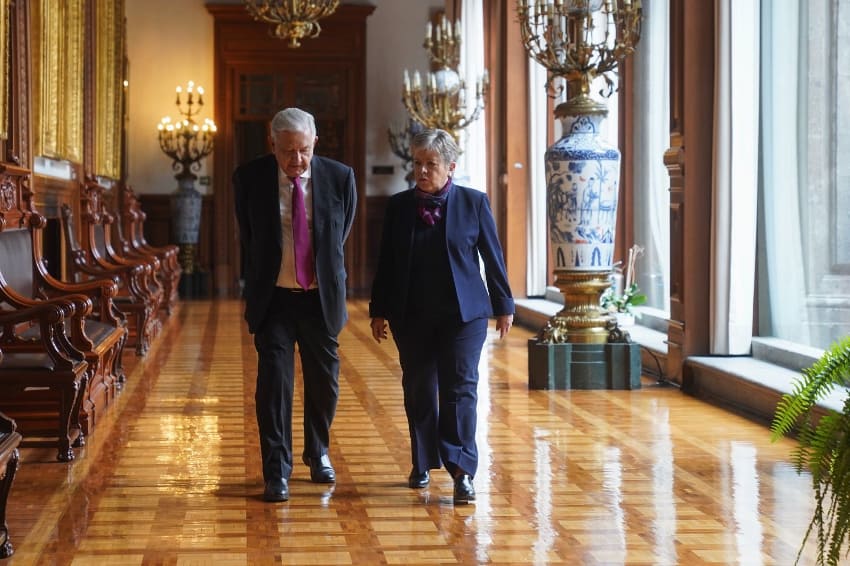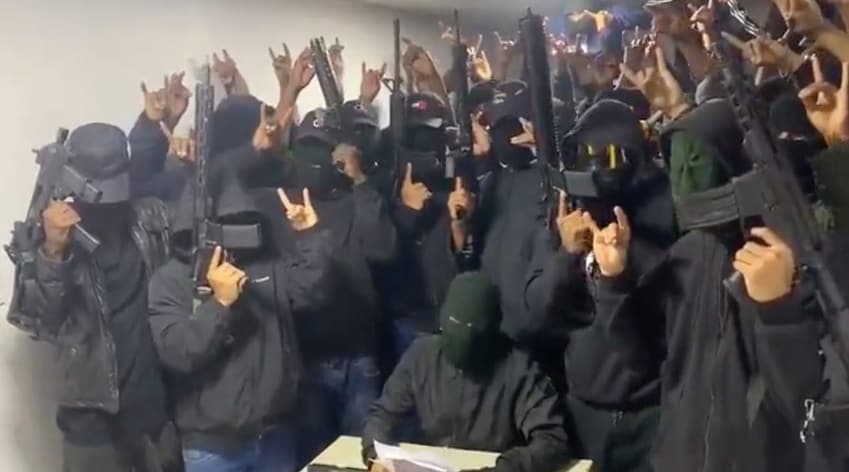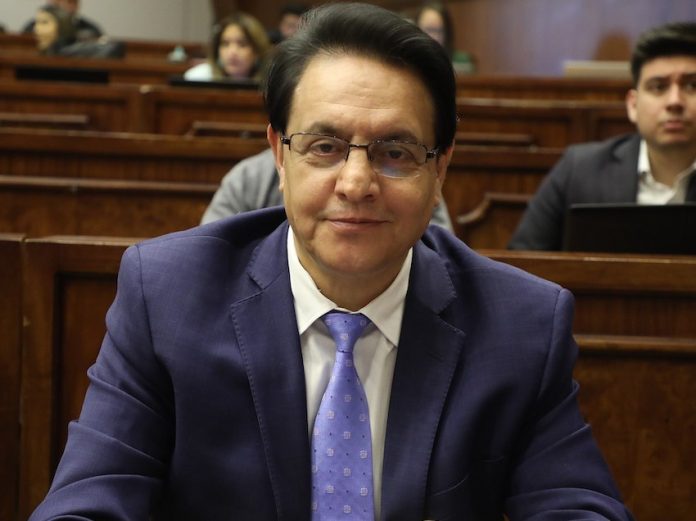There is “no evidence” that Mexico’s Sinaloa Cartel was involved in the Wednesday assassination of Ecuadorean presidential candidate Fernando Villavicencio, Mexican Foreign Minister Alicia Bárcena said on Thursday.
Bárcena said that Mexico is “worried, distressed and afflicted” by Villavicencio’s killing and has offered Ecuador “all the support it requires,” but stressed that it is too early to know if the murder has any links to Mexican organized crime.

“We do know that candidate Villavicencio had made pronouncements [about criminals linked to the Sinaloa Cartel] in his campaign, but there is no proof,” she said at a press conference following a meeting in Washington, D.C. with U.S. Secretary of State Antony Blinken. She lamented that insecurity is a problem throughout “the entire region.”
In his Thursday morning press conference, President Andrés Manuel López Obrador also insisted that “there is no evidence” to suggest the Sinaloa Cartel was behind Villavicencio’s killing.
Villavicencio was shot as he left a campaign rally in the country’s capital, Quito, and nine other people were injured in the gunfire. In the weeks leading up to his assassination, he had denounced threats from an imprisoned criminal leader with alleged ties to the Sinaloa Cartel.
The candidate, who was also a former journalist, first reported on July 31 that he was receiving threatening messages from José Adolfo “Fito” Macías Villamar, leader of Ecuadorean gang Los Choneros. This gang is considered a major transporter of cocaine through Ecuador and is believed to supply international trafficking routes managed by the Sinaloa Cartel.

Hours after the killing, however, a group of hooded men claiming to belong to Los Choneros’ rival gang Los Lobos released a video claiming responsibility for the attack. Los Lobos are thought to be linked to Mexico’s Jalisco New Generation Cartel (CJNG), bitter rivals of Sinaloa. To confuse matters further, a group of unmasked men claiming to be true members of Los Lobos released another video on Thursday, rejecting the first video and denying the gang’s involvement.
The same day, an Ecuadorean judge ordered preventive detention for six men arrested for their alleged participation in the assassination. All six were Colombian nationals.
The extent of Mexican involvement in Ecuador’s spiraling drug violence is still unclear. Ecuador is one of the world’s key cocaine transit countries, distributing between 700 and 800 tons per year, mostly to the United States and Europe. While Mexican organized crime has been present in the country since the early 2000s, internal drug transport and the associated violence are managed by local criminal groups.
“Ecuador’s violence problem is endogenous,” Daniel Pontón, dean of the School of Security and Defense of the Institute of Higher National Studies of Ecuador, told El País newspaper. “Of course, it is largely financed by international organized crime. But I don’t know to what extent the Mexican cartels pull the strings of what happens here. The truth is that there is little information.”
Ecuador’s president Guillermo Lasso has declared a national state of emergency, but confirmed that elections will still be held as scheduled on Aug. 20.
With reports from Reuters, El Financiero, El País and Milenio
